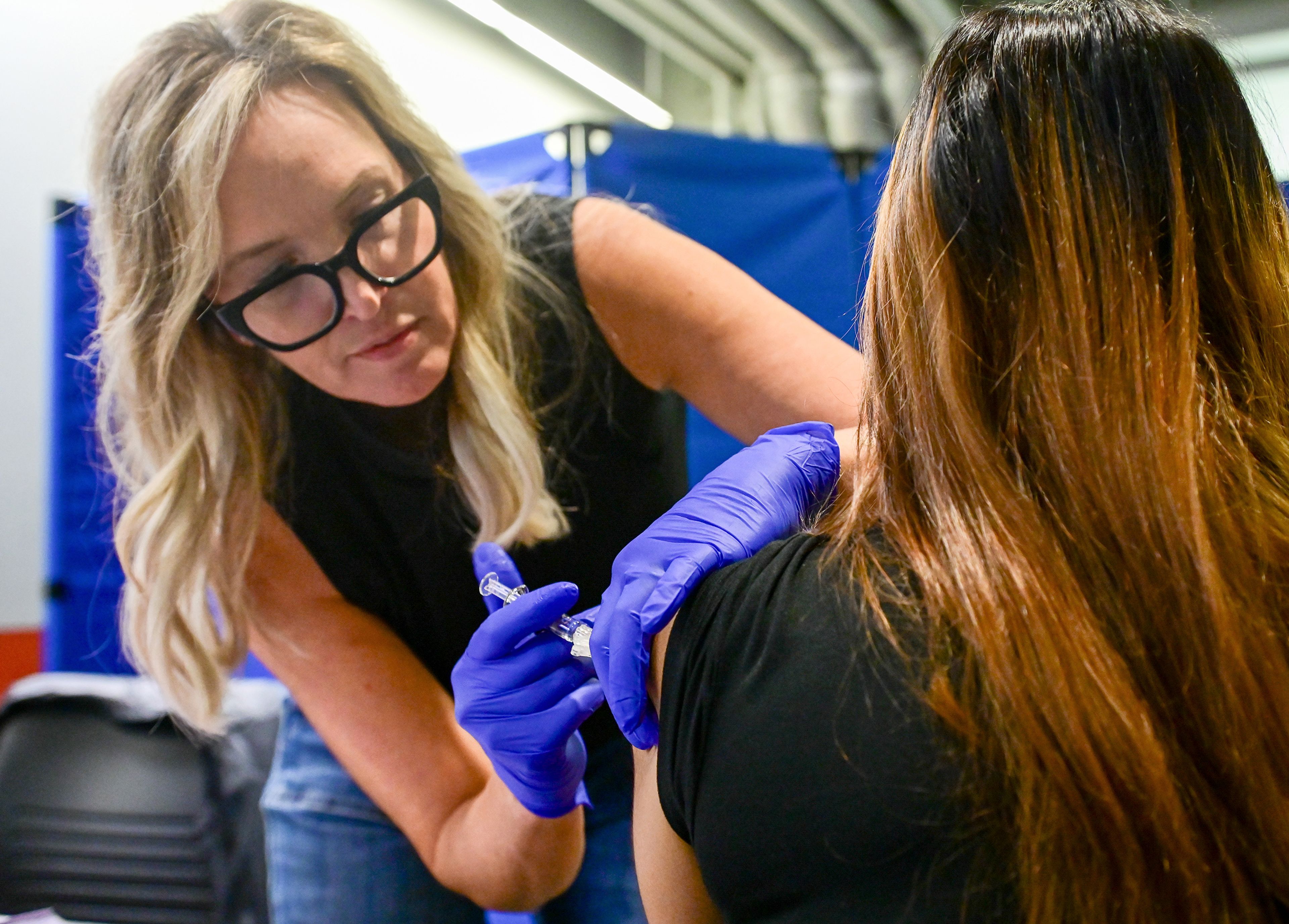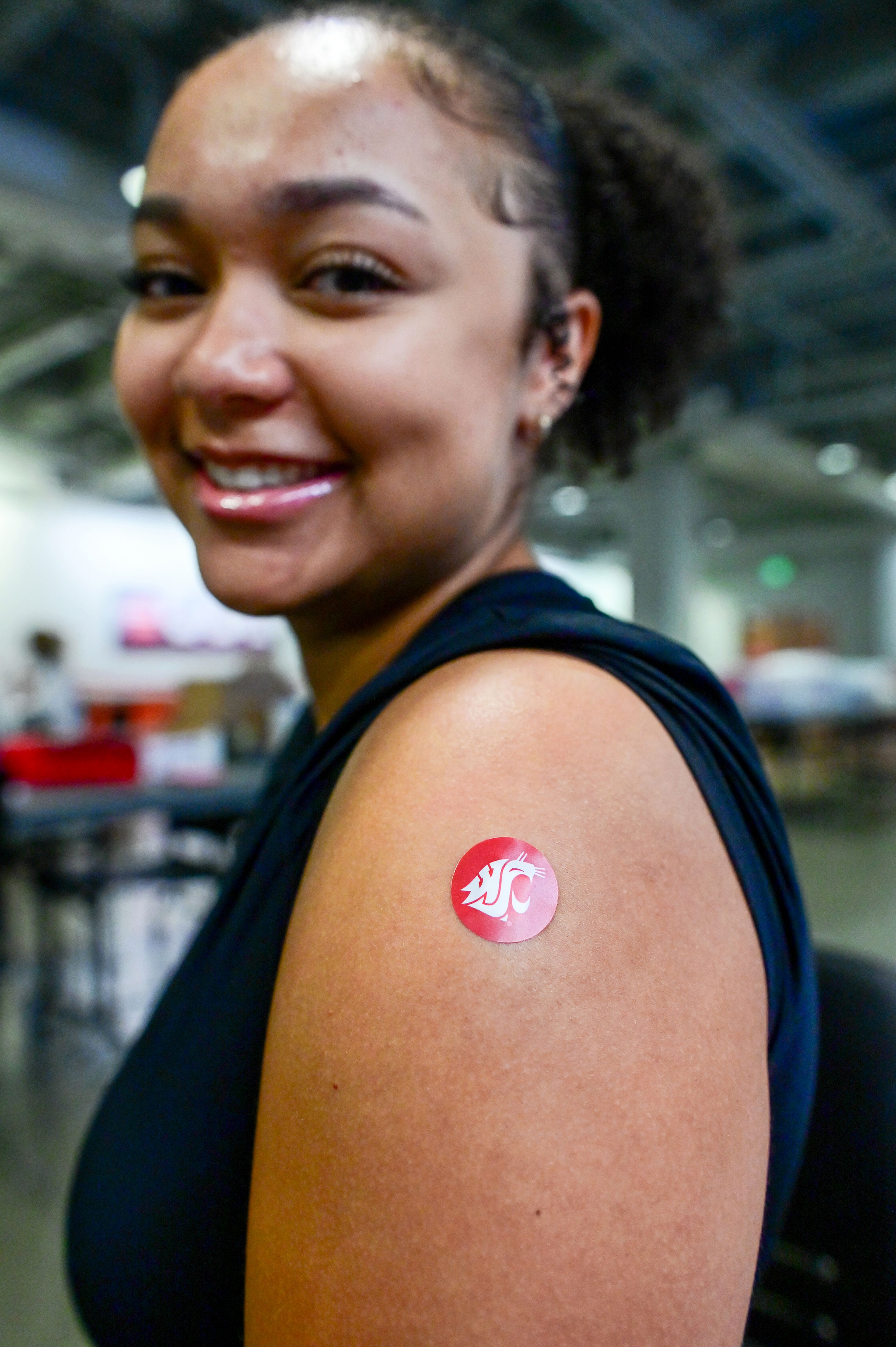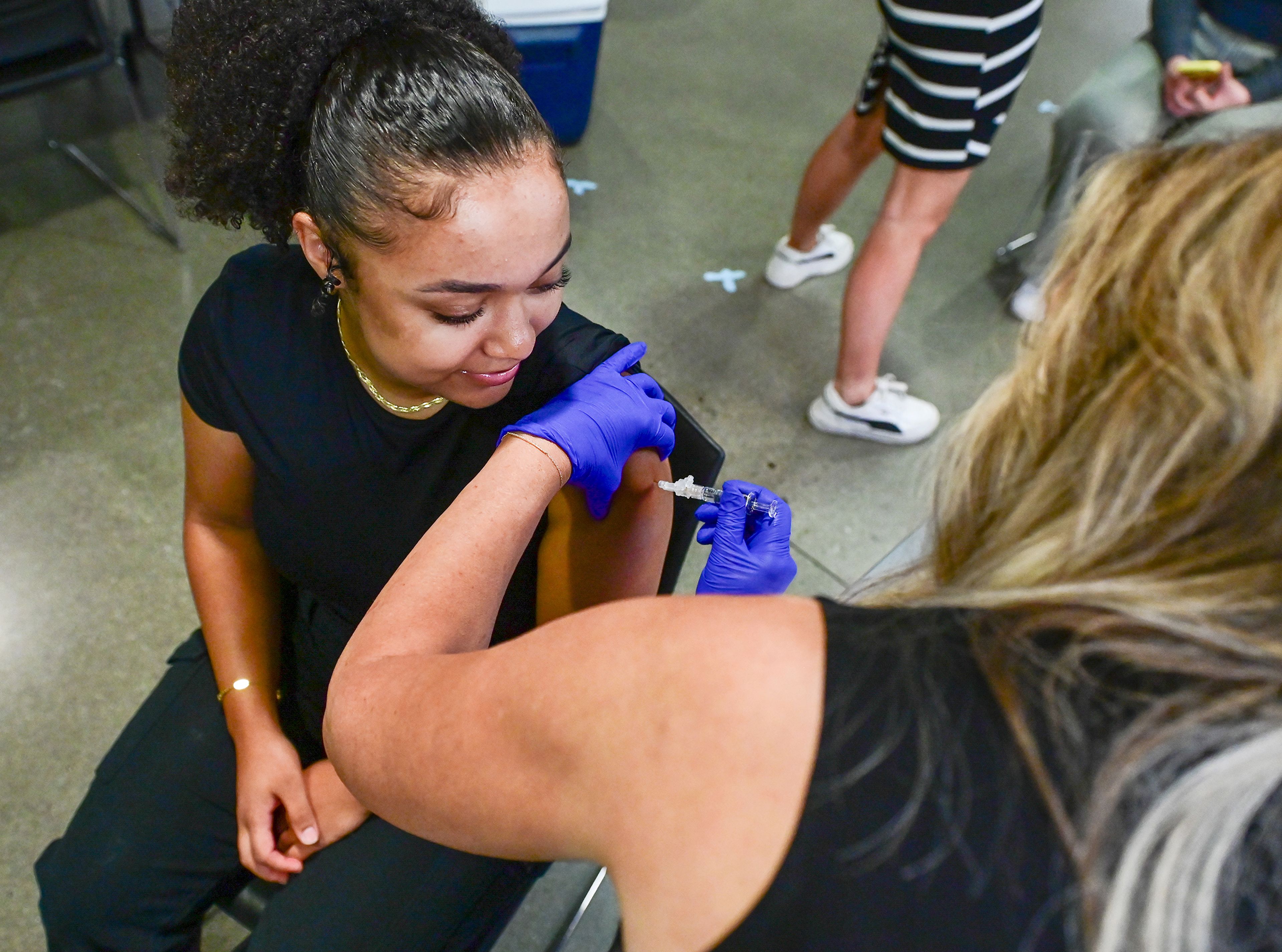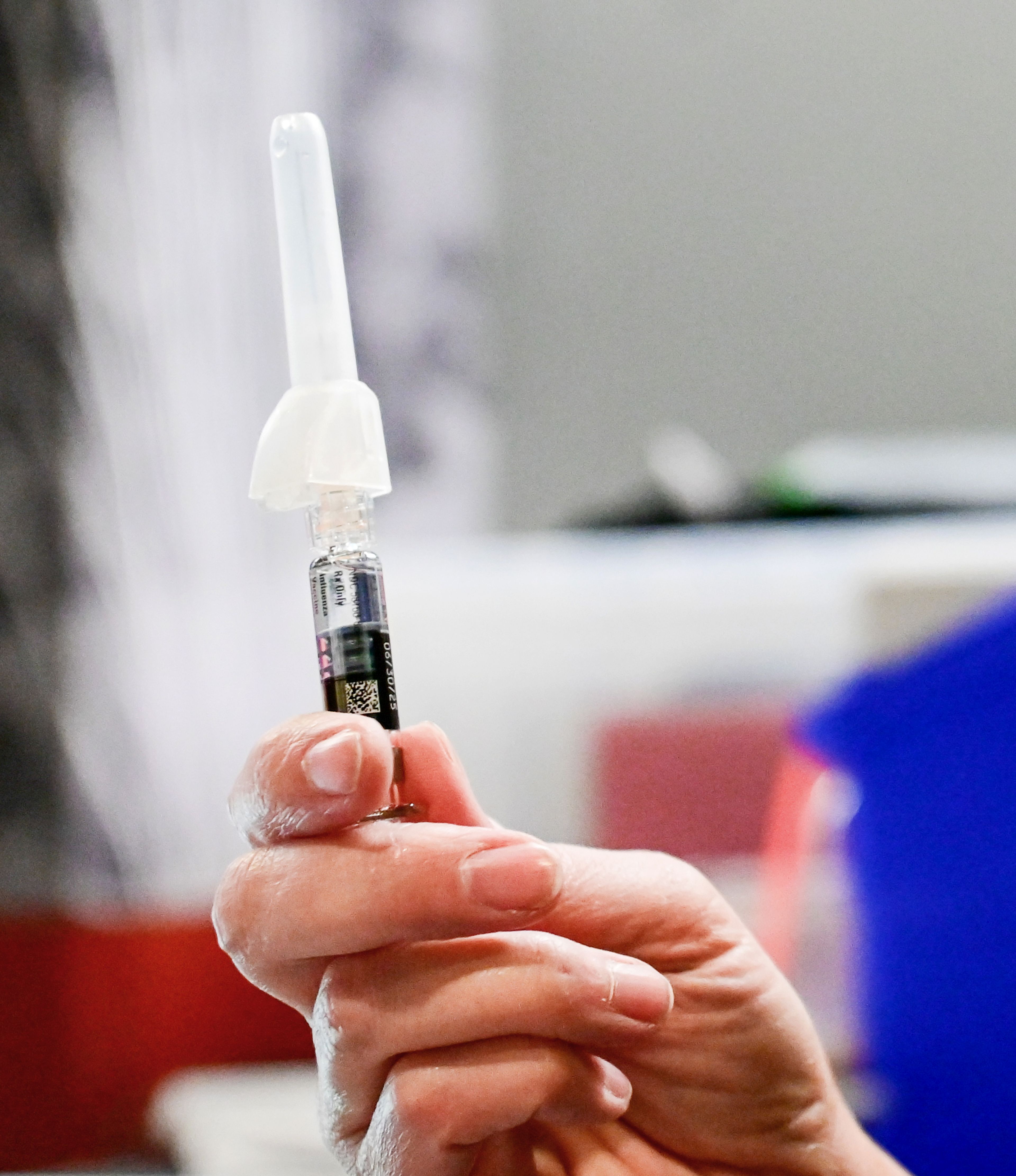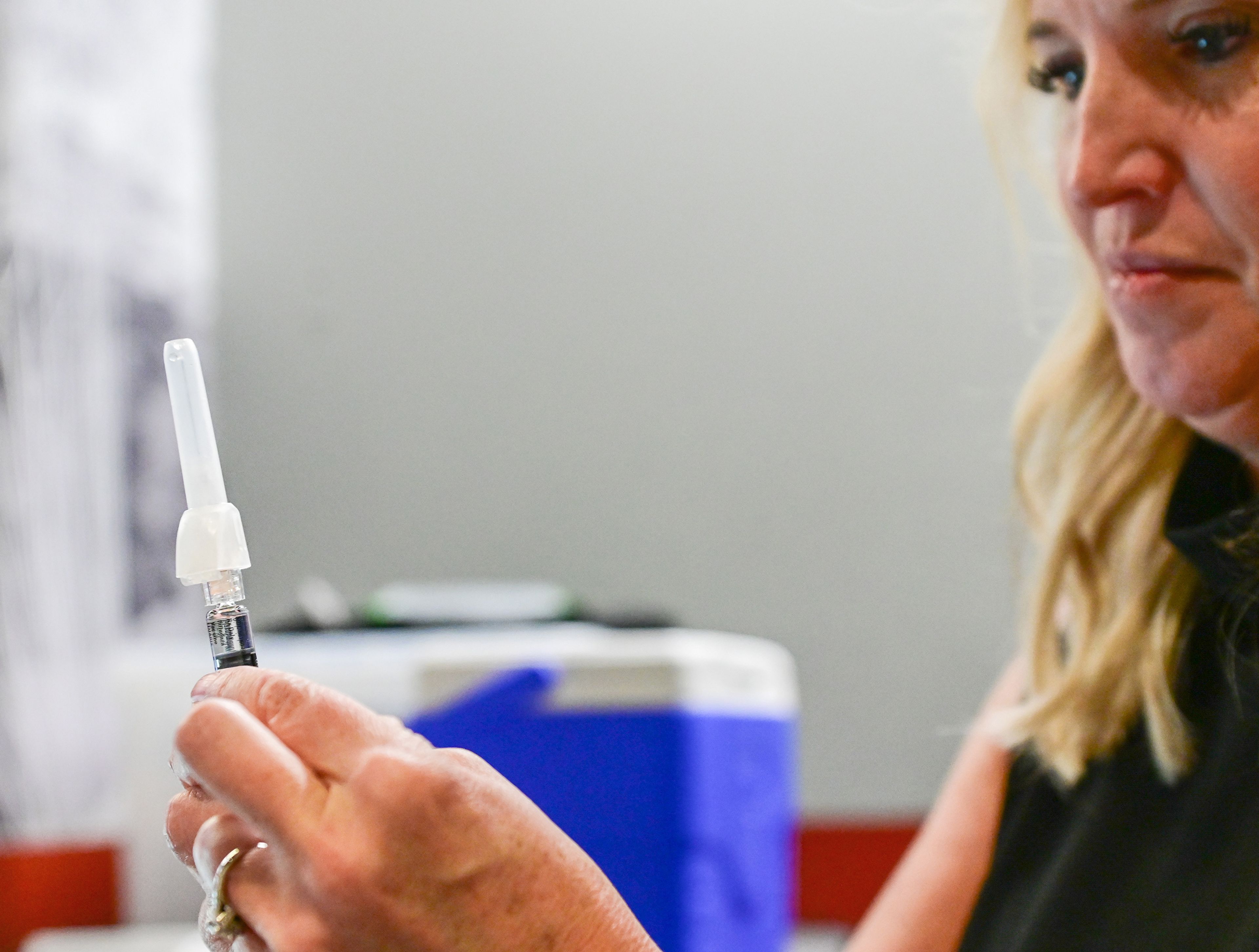Your best shot at a healthy flu season
Local experts recommend get vaccinated now for influenza, COVID-19
Health officials say now is a great time to re-up on vaccinations for flu and other respiratory illnesses.
When you get vaccinated for the flu, it takes about two weeks for your body to reach full immunity, said Rocky Sulkoske, a registered nurse working at Gritman Medical Center in Moscow.
“So when you give yourself that little bit of a window and you have that immunity established by the middle of October, it’s actually really great because that’s typically when we get into a lot of the holidays,” she said.
Influenza typically begins to rise around November and peaks around February, said Brady Woodbury, the director at Asotin County Health District.
He said early October is a great time to get flu shots. People will have a high level of immunity during the months with the highest levels of influenza transmission before protection from the vaccine wears off.
An updated COVID-19 booster vaccine also is available. Though COVID-19 does not have a “season” the way the flu does, anyone can get the updated booster if it’s been at least two months since their last booster.
Woodbury said it’s important to be vaccinated for both the flu and COVID-19, especially for people who have yet to receive COVID-19 immunization. These vaccines are also significant to people at an increased risk of severe infection, he said.
“We’re still seeing COVID deaths across the country. About a thousand per week,” he said. “I don’t say that as a scare tactic, but more, it emphasizes that COVID isn’t the same as flu. It’s a little bit harsher.”
Chris Skidmore, the director of Whitman County Public Health, said vaccinations are important to protect the health of the entire community.
“I’ve had some family emergencies during the COVID pandemic where family members nearly died from COVID,” Skidmore said. “That was before they were able to even get the vaccine. And so it really hits home for me a lot, and it’s something that I’ll always be very passionate about and really emphasize to the broader community.”
The number of people in a community who get vaccinated also affects all types of health care access, he said. For example, when hospitals fill up with influenza and COVID-19 patients, they have to divert other patients, leading to worse health outcomes.
Skidmore said for the university population in Pullman and Moscow, vaccinating early can help protect students’ hometowns across Washington, Idaho and the surrounding states just as much as the college towns.
“A couple years ago, we had a massive influenza outbreak within our student population. I want to say it was between 100 and 200 diagnosed cases within a single week,” he said. “That was the week before they went back home for Christmas. And so that was a big concern to me.”
The Centers for Disease Control and Prevention also updated their guidelines this year, stating that no additional safety measures are necessary for people with egg allergies, regardless of the severity of that allergy.
Anecdotally, Sulkoske said, some people have said they seem to notice fewer side effects with the egg-free Flucelvax vaccine. However, egg-free vaccines are not necessary for safety reasons.
After receiving the flu vaccine, Sulkoske said, it’s best to frequently move the muscle it was injected in and drink lots of fluid.
Over-the-counter pain relievers can be used if needed to deal with the side effects some people experience such as tenderness at the injection site, but they should not be used beforehand, said Mike Larson, a nurse for Public Health – Idaho North Central District.
“Some of those over-the-counter pain medications will actually tamp down the immune system. Because it’s the immune system that causes the swelling and the inflammation,” he said. “After the fact, if it’s giving you additional pain, then it’s OK to do it.”
Vaccinations also are available for respiratory syncytial virus or RSV. They are available for adults 75 and older, or adults older than 60 who are at an increased risk for severe infection. They are also available for pregnant women.
“We found out during COVID that RSV is fairly common in adults,” Larson said. “But elderly adults can have a significant illness from it.”
For infants, an antibody treatments is available to prevent serious infection, he said.
Whooping cough in Whitman County
Whitman County also reported two cases of pertussis, or whooping cough, in the Washington State University student population Tuesday, according to Whitman County Public Health. The health department believes there are additional cases circulating in the area.
Pertussis is a serious respiratory illness caused by the bacteria Bordetella pertussis, which is most dangerous to children younger than 1 year old, as well as seniors. People who are likely to come into contact with young infants also are considered high risk.
Though pertussis can easily be treated with antibiotics, it can be highly uncomfortable for even healthy people who contract it, with some people dealing with a persistent cough for weeks or months after infection. The name “whooping cough” originally came from the “whoop” sound infected people sometimes make while gasping for air during a coughing fit.
“It isn’t uncommon for people that have full-blown symptoms of pertussis to sometimes even pass out at the end of this coughing, or even vomit a little bit,” Larson said. “When you have babies, they don’t have the strength to maintain that type of a cough and it can be a life-threatening situation.”
The best way to protect against pertussis is with a vaccination. Anyone not up to date on their pertussis vaccination should seek care with their health care provider to update their immunization status, according to Whitman County Public Health.
For infants and young children, the DTaP (diphtheria, tetanus, and pertussis) vaccine is given in five doses at 2, 4, 6, 15-18 months, and 4-6 years.
Tdap (tetanus, diphtheria, and pertussis) boosters are recommended for adolescent children, adults and pregnant women. For healthy adults, Tdap vaccines are recommended every five to 10 years. Parents of infants are also recommended to get boosters before their baby is born.
For pregnant women, the Tdap vaccine is recommended in the third trimester of pregnancy to protect the infant. It also is recommended for family members and caregivers of young infants.
Where to go for vaccines
For people with insurance, vaccines for influenza and COVID-19 are widely available at many local pharmacies and doctor’s offices. Patients are advised to talk to their primary care provider, or pediatrician for their child, as a first step for vaccinations.
For people without insurance, some vaccine clinics offer low-cost vaccinations.People without insurance may also go to federally qualified health centers, such as CHAS Health, Larson said. Those centers will have programs to provide low-cost vaccinations.
Sun may be contacted at rsun@lmtribune.com or on Twitter at @Rachel_M_Sun. This report is made in partnership with Northwest Public Broadcasting, the Lewiston Tribune and the Moscow-Pullman Daily News.
